BLUE LIGHT CARD DISCOUNTS available across all therapies and packages. Thank you NHS.
The Sober Spectrum: Tailoring Drinking Habits for Optimal Health and Allergy Relief

READ TIME 15 MINS
In a world where alcohol consumption often serves as a social lubricant and stress-reliever, a growing movement is challenging the notion that drinking is essential to a fulfilling and fun fuelled life. With sober curious and sober flexible movements redefining our relationship with booze and a booming market of alcohol-free drinks on offer, more and more individuals are exploring alternatives and practices that prioritise their health and well-being.
According to the latest figures, a fifth of adults now opt for softer drinks over hard ones, with researchers noting that young people and generation Z show evidence of evolving priorities. Social media and the press are full of folk sharing their stories towards teetotal living, with many high-profile individuals representing this different way of life. 8.5 million people took part in this year’s Dry January, with Google trends reporting a significant increase is search interest for ‘non-alcoholic drink’. Even Kate Moss is long on the wagon.
My Sober Start
When I first took a pause from booze nearly 20 years ago, it was an uninspiring landscape. Bar offerings consisted of sugar laden and often garish sickly mocktails and the few beer options on the market were wasted on me. It rendered me often with a sparkling water in hand, grateful if out and adamant if in, on its arrival in a fun looking, elegant cocktail-esque ‘special’ glass. I felt confused by strangers’ umbrage to my sobriety or friends delight that I could still hold my own at a festival or Fabric and bored by relentless questions and assumptions of possible pregnancy or substance abuse.
When 2012 brought the arrival of my liquor loving fella I was once again predominantly alcohol free, enjoying the odd glass of something stronger at intermittent special occasions or evenings out. His decade spent behind some of the top bars in London elevated him to superhero status in my quest to find interesting beverage options. To this day I remember the affection and awe I felt, when on crashing back to my flat, surrounded with a host of merry and more souls, he voiced discontentment that I would once again be pouring a water or debating a brew, and disappeared into the kitchen utilising my spice rack, tea cupboard, fridge and freezer to concoct a potion that proved compatible with health, taste buds and the party spirit that went on until dawn.
Thankfully times have changed. In this comprehensive exploration, we’ll delve into the changes happening, the impact of alcohol on gut health, immune function and allergies, as well as the multiple benefits of reducing or abstaining from alcohol consumption. We’ll also discuss practical strategies for reducing your alcohol intake and living a fulfilling life without it, and I’ll share my top 5 tipples for those sober special occasions and Saturday nights.
The Sober Curious Movement: Questioning the Status Quo
The sober curious movement encourages individuals to examine their drinking habits with curiosity and mindfulness. Instead of accepting alcohol consumption as a default social activity, participants question its role in their lives and explore the benefits that sobriety can bring. This movement is not about strict abstinence but rather about making conscious choices regarding alcohol consumption. Centering on a person’s personal preference, beliefs, health needs and more, the focus is on individual analysis and choice rather than strict and rigid rules. By experimenting with sobriety, perspective is gained and space created to potentially experience improved physical health, mental clarity, and emotional wellbeing.
It’s important to draw a clear distinction between sober curious and sobriety. Choosing sobriety means abstaining completely from alcohol. Some people do this for religious reasons, others due to personal or family addiction experiences. Others simply don’t like the taste or the feelings drinking brings. On the other hand, being sober curious means reflecting on why, when and how you consume alcohol and inquisitively trying out occasions without it.
The Sober Flexible Approach: Finding Balance in Moderation
While some may choose complete sobriety, others may adopt a sober flexible approach, allowing for occasional indulgence while prioritizing moderation and mindfulness. This approach recognises that alcohol can be enjoyed responsibly, in reasonable amounts and in measured, more attuned ways, emphasising the importance of self-awareness and balance. By practicing moderation, individuals can reap the benefits of a sober life while still participating in social occasions and enjoying the occasional drink(s). This experimentation can bring with it the same insight and health benefits, clarity and wellbeing mentioned before.
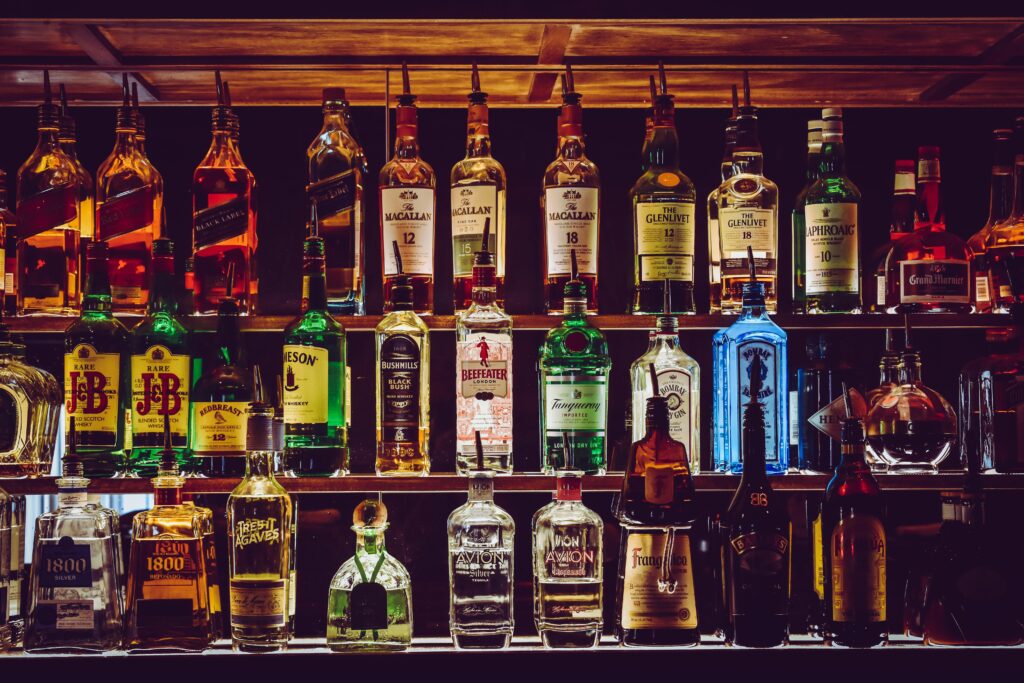
The Impact of Drinking on Our Health
Given the growing body of evidence on drinking, increasing levels of illness and greater collective consciousness around what we put into our bodies and how we harness wellbeing, it should come as no surprise that more and more people are fine tuning their relationship to the bottle.
When it comes to assessing the effects of drinking on overall health, it’s essential to consider the diverse array of substances founds in each potential drink. From the obvious alcohol content to the wider ingredients including sugar, sweeteners, additives, preservatives and individual food triggers in each glass, each component can have a distinct influence and impact on our health. A modern spotlight has also been placed on the broader drivers of disease that a booze fuelled eve often brings such as sleep deprivation, poor food choices, dehydration, toxins and the arguable need to pop pharmaceuticals the next day once the effects of it all begins to take hold. Alongside this is the increased awareness around the myriad of snowballing health conditions such as histamine intolerance, diabetes, gout and anxiety disorders directly affected by including too much drink as an imbalanced part of your overall diet.
The Gut-Wrenching Impact of Common Drink Ingredients
Alcohol and sugar consumption are both well-known for their significant detrimental effects on gut health. Ethanol, the primary component of alcoholic beverages, can disrupt the balance of gut bacteria, leading to dysbiosis and inflammation in the digestive tract. Acute and chronic alcohol consumption is associated with increased intestinal permeability (leaky gut), allowing harmful substances to pass through the intestinal barrier and trigger immune responses.
Many popular drinks, including sodas, juices, and cocktails, contain high levels of added sweeteners and sugars. Excessive sugar intake can fuel the growth of harmful gut bacteria while depleting beneficial strains, leading to imbalances in the microbiome. In a similar way to alcohol, sugar consumption is also associated with increased intestinal permeability and inflammation, both of which can compromise gut and wider health.
These sweeteners, such as aspartame, sucralose, and saccharin, are commonly used in diet sodas, flavoured waters, and other low-calorie beverages. While these sweeteners are marketed as sugar substitutes, research suggests that they may also disrupt the gut microbiome and contribute to metabolic dysfunction. Some studies have linked artificial sweetener consumption to the exact same changes as sugar in gut bacteria composition, alterations in glucose metabolism, and increased inflammation in the gut.
Many processed drinks contain preservatives, additives, and artificial flavourings to enhance shelf life and taste. These substances may have unintended consequences for gut health, as they again can disrupt the delicate balance of the microbiome and contribute to gastrointestinal irritation. Certain additives, such as emulsifiers and thickeners, have been proven to promote inflammation in the gut and may exacerbate digestive issues in susceptible individuals.
Collectively these ingredients can contribute to a variety of digestive issues, including irritable bowel syndrome (IBS), inflammatory bowel disease (IBD), and gastrointestinal infections. With increasing research confirming and expanding our understanding of the guts foundational role in multi systems body health- spanning skin resilience and reactivity, immune tolerance, nervous system and mood equilibrium, hormone balance, optimised fertility and more-we can see how through impacting the ecosystem of the gut, we undermine the very foundation on which wider disease states and positive health rests.
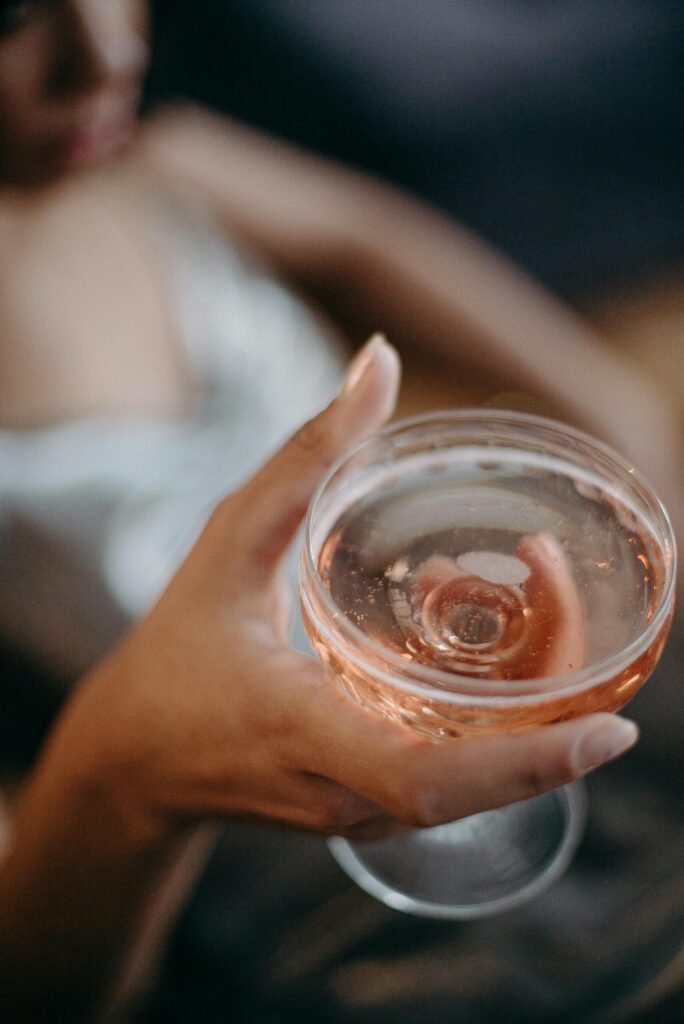
The Immunological Implications of Drinking- The Interplay Between Alcohol, Sugar, and Immune Health
The interplay between alcohol, sugar, and immune health when it comes to drinking is complex and multifaceted. The combination of alcohol and sugary mixers commonly found in alcoholic beverages overlap in their corrosive and detrimental effects on the gut and intricately linked immune system, exacerbating and amplifying said destruction, creating a perfect storm for immune dysfunction.
Alcohols Effects on Immune Health
Alcohol exerts its effects on the immune system through multiple mechanisms, disrupting the delicate balance of immune cells and signalling molecules responsible for protecting the body from infections.
Some key effects of alcohol on immune function include:
Impaired Immune Response:
- Chronic alcohol consumption suppresses the production and function of immune cells, such as T cells, B cells, and natural killer (NK) cells, compromising the body’s ability to recognize and eliminate pathogens.
- Alcohol-induced immunosuppression weakens the immune system, leaving individuals more susceptible to infections and illnesses.
Increased Susceptibility to Infections:
- Regular alcohol consumption is associated with an increased risk of developing infections such as pneumonia, tuberculosis, and influenza.
- Alcohol impairs the function of immune cells involved in combating bacterial, viral, and fungal pathogens, making it easier for infections to take hold and spread within the body.
Delayed Wound Healing:
- Alcohol consumption can delay the process of wound healing by impairing the function of immune cells and disrupting the inflammatory response necessary for tissue repair.
- Chronic alcohol use is associated with delayed wound closure, increased risk of infection at the wound site, and poor overall healing outcomes.
Altered Cytokine Production:
- Alcohol disrupts the balance of pro-inflammatory and anti-inflammatory cytokines, signalling molecules that regulate the immune response.
- Excessive alcohol consumption can lead to dysregulation of cytokine production, contributing to chronic inflammation and immune dysfunction.
Sugar Effects on the Immune System
Excessive sugar intake can also have detrimental effects on immune function, again disrupting the delicate balance of the system and increasing susceptibility to infections.
Some key effects of sugar on immune health include:
Impaired Immune Response:
- High sugar intake has been shown to suppress immune function, impairing the body’s ability to mount an effective defence against pathogens.
- Excessive sugar consumption can decrease the activity of immune cells such as neutrophils and macrophages, reducing their ability to engulf and destroy invading microbes.
Increased Inflammation:
- Sugar consumption can lead to chronic low-grade inflammation in the body, which can impair immune function and contribute to the development of inflammatory conditions.
- Chronic inflammation can compromise the integrity of the immune system, making individuals more susceptible to infections and illnesses.
Dysbiosis of Gut Microbiota:
- High sugar intake can disrupt the balance of gut microbiota, promoting the growth of harmful bacteria while reducing levels of beneficial strains.
- Dysbiosis of gut microbiota is associated with immune dysfunction and increased susceptibility to infections and inflammatory diseases.
Alcohol and Sugar- The Inevitability of Allergic Disease
The intricate interplay between alcohol, sugar, and immune health extends beyond susceptibility to infections, often leading to the development or exacerbation of allergic disease. Excessive alcohol consumption and high sugar intake consumed independently and in isolation of the other can disrupt the balance of the immune system, triggering inflammatory responses and dysregulating the immune cells involved in a host of allergic reactions. With alcohol itself causes leaking in the gut, notably implicated in the development and worsening of intolerances, sensitivities and allergies, it also acts as a histamine liberator, intensifying allergic symptoms in susceptible individuals. As detailed above, the gut dysbiosis caused by the sugary beverages is also key in establishing and aggravating allergic response.
The combination of these factors in excess, along with the additional disruptions to valuable holistic support strategies such as restful sleep, optimised liver function and emotional wellbeing, simply creates an environment conducive to the development of allergic diseases. Potentially tipping those previously unaffected and genetically non predisposed into irritated territory, and condemning those already at risk or in active states of reactivity to worsening rhinitis, asthma and eczema situations with limited remission or respite.
Alongside this, our individual genes can all play a role with certain genetic profiles fundamentally programmed to poorer detoxification capacities meaning folk deal poorly with the burden these ingredients bring. Direct allergic reactions to the chemicals in drinks such as congeners which provide body, aroma and flavour or the foods on which a drink is based such as grapes for wine and grains for whiskey can trigger an immune response. Yeasts, moulds, sulphites, sulphur dioxide and additives all offer up allergens that can stress the system out too.
By recognizing the role of drinking, alcohol and sugar in allergic disease development and adopting healthier drinking habits, individuals can mitigate allergic symptoms and support a more improved outlook when it comes to overall immune and and allergic health.
Unlocking Wellness: The Health Benefits of Reducing Alcohol Consumption
Reducing alcohol consumption can lead to a myriad of other health benefits that positively impact both physical and mental wellbeing. By embracing moderation or abstaining from alcohol altogether, anyone and everyone can experience holistic insights and improvements in various aspects of their health. Whether you’re on the quest to boost your biome, balance your immune system, ease your allergies, soothe your skin or take charge of any disease or health goal, reassessing, reframing, reducing and/or removing alcoholic beverages out of the picture-if only for a while-will move you closer to where you want to be.
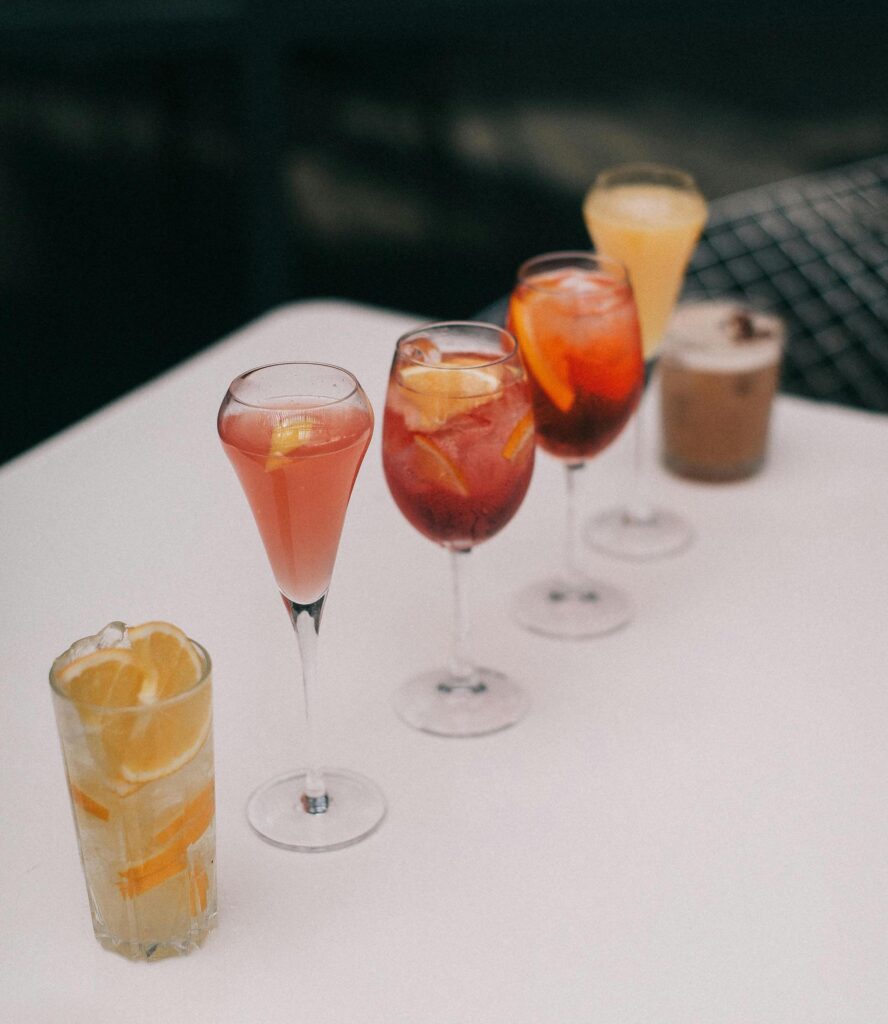
Common Health Benefits of Reduced Alcohol Consumption
- Improved Digestive Health
For all the reasons laboured extensively above. Reducing alcohol reduces the impact it can have to irritate the gastrointestinal tract, reduce acid reflux, gastritis, and inflammatory bowel disease. By simply cutting back individuals can reduce inflammation in the digestive system, alleviate gastrointestinal symptoms, promote a healthier gut microbiome and build a solid foundation for wider body health.
- Stronger Immune System
Chronic alcohol consumption suppresses immune function, leaving individuals more susceptible to infections and illnesses. By moderating alcohol intake, individuals can support immune health, reducing the risk of infections and enhancing the body’s ability to fight off pathogens.
- Enhanced Liver Function
Alcohol intake strains the liver, leading chronically over time to inflammation, fatty liver disease, and, in severe cases, cirrhosis. Cutting back on alcohol allows the liver to regenerate and function more efficiently, removing one optional burden, reducing the risk of liver damage and improving overall liver health.
- Better Sleep Quality
While alcohol may initially induce drowsiness and promote sleep, it disrupts the natural sleep cycle and can lead to fragmented or poor-quality sleep. By cutting back on alcohol, individuals may experience more restful and rejuvenating sleep, leading to improved microbiome diversity, energy levels, mood, immune balance and cognitive function during waking hours.
- Improved Skin Health
Excessive alcohol consumption can dehydrate the skin, leading to dryness, dullness, and premature aging. Additionally, alcohol dilates blood vessels in the skin, causing redness and exacerbating conditions such as rosacea and acne. By reducing alcohol intake, individuals can improve skin hydration, reduce inflammation, and promote a clearer, more radiant complexion. This can lead to a healthier overall appearance and greater confidence in one’s skin.
- Upgraded Mental Wellbeing
Excessive alcohol consumption is associated with an increased risk of depression, anxiety, and other mental health disorders. By reducing alcohol intake, individuals may experience improvements in mood, cognitive function, and overall mental well-being. Additionally, sobriety can enhance emotional resilience and support healthier coping mechanisms for managing stress and challenging emotions.
- Better Cognitive Function
Heavy alcohol consumption can impair cognitive function and increase the risk of cognitive decline and neurodegenerative diseases such as Alzheimer’s disease. By limiting alcohol intake, individuals can protect brain health, maintain cognitive function, and support long-term brain vitality.
- Enhanced Hydration
Alcohol is a diuretic, meaning it increases urine production and can lead to dehydration if consumed excessively. By reducing alcohol intake, individuals can better maintain hydration levels, supporting overall bodily function and promoting healthy skin, kidneys, and digestion.
- Improved Heart Health
Moderate alcohol consumption has been associated with certain cardiovascular benefits, such as increased levels of “good” HDL cholesterol and reduced risk of heart disease. However, excessive alcohol consumption can elevate blood pressure, increase triglyceride levels, and contribute to heart muscle damage. By moderating alcohol intake, individuals can support heart health and reduce the risk of cardiovascular problems.
- Better Weight Management
Alcoholic beverages are often high in calories and can contribute to weight gain when consumed in excess. By reducing alcohol consumption, individuals can lower their calorie intake, making it easier to achieve and maintain a healthy weight. This can lead to improvements in overall metabolic health and a reduced risk of obesity-related conditions such as type 2 diabetes and metabolic syndrome.
- Enhanced Social Connections
While alcohol is often associated with socializing and social events, excessive drinking can sometimes lead to strained relationships and social isolation. By reducing alcohol consumption, individuals can cultivate deeper and more meaningful connections with others, fostering healthier social interactions and a stronger sense of community.
- Longer Lifespan
Numerous studies have linked excessive alcohol consumption to an increased risk of premature death from various causes, including liver disease, cardiovascular problems, accidents, and certain cancers. By moderating alcohol intake, individuals can lower their overall mortality risk and increase their chances of living a longer, healthier life. This can lead to greater longevity and a higher quality of life in the later years.

Mindful Celebrations: Navigating Social Events Sober
Giving up alcohol doesn’t mean cancelling your social life. It’s needn’t be just booze that gets you into the land of the living or keeps you out until the early hours of the morn. There is the buzz of getting together with friends, the excitement of trying out a new place, the experience of relaxation after a tough day at work or the revelry of finally reaching a deadline- all equally the soul affirming glow of life and real connection.
If you’re in need of strategies to aid you along your way at the beginning here’s a checklist to get you going.
Top 5 Strategies For Sampling Going More Alcohol Free
- Set goals: Determine how much alcohol you want to consume each week and set achievable goals to gradually reduce intake.
- Limit triggers: Identify situations or environments that encourage drinking and find alternative activities to engage in instead.
- Practice mindfulness: Pay attention to the reasons behind your desire to drink and explore healthier coping mechanisms for managing stress or socialising.
- Seek support: Reach out to friends, family, or support groups for encouragement and accountability on your journey to reduce alcohol intake.
- Experiment with alternatives: Explore non-alcoholic beverages and mocktail recipes as enjoyable alternatives to alcoholic drinks.
Personal Favourites on a Sober Shindig
Here are tried and tested methods that have kept me content through events, birthday celebrations and more. Honestly it can be done.
- Follow the music: Don’t be hyper aware of your surroundings, loose your inhibitions, throw yourself into dancing or prop yourself in a quiet corner and take it all in. Ensure you can depend on the DJ, know you can depend on your friends.
- Embrace the benefits: Start to challenge yourself in different ways. Know you can do anything sober, which is empowering and enjoy remembering the memories the next day.
- Invest in Yourself: Treat yourself in celebration. Use what you’ve saved to do something for yourself, it can give you a tangible reason why it’s worth it and if you’re doing it for health, regularly treat yourself and reflect on the difference curating your drinking schedule is making.
- Know when it’s time to go home: Don’t be ashamed to call it a night, or get FOMO when you do. Remember things often appear better online than in real life and many occasions peak at midnight and long before dawn. It’s best to bail before you stop finding the same things funny, and once you’re winding down in bed you won’t miss a thing.
Refreshing Alternatives: Non-Alcoholic Drink Recommendations for Every Occasion
If you’ve ever thought about abstaining, even just for a few weeks, what’s holding you back?
Time without booze, will make you realise it’s one of the best self-care moves you can make. Thankfully the drinks industry has wised up to this fact with a cocktail (pun intended) of delicious, premium options that taste and look the part. Increasingly harnessing botanicals, herbs, adaptogens and more to ensure the glass in your hand boasts not only the advantage of being booze free, but can also be supporting your health goals; products are packed with nutrients that can promote the party spirit or a relaxing unwind.
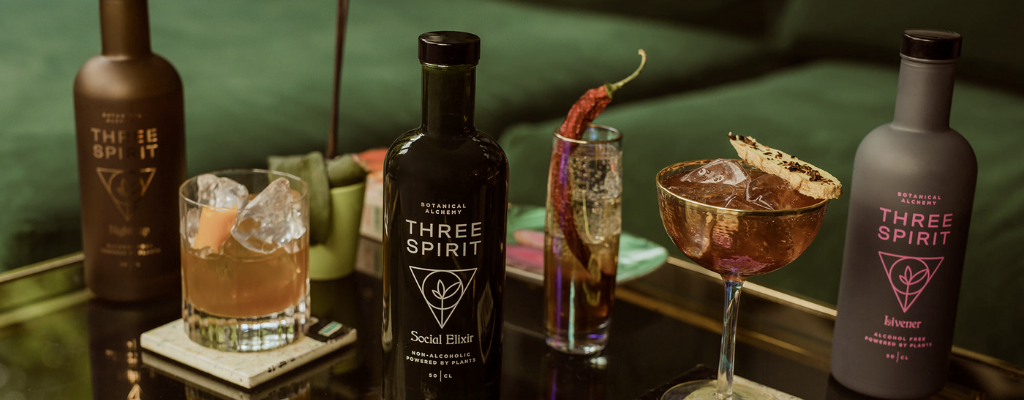
Staples to Stock up The Drinks Cabinet
Seedlip– One of the earliest to the market, and the first to arrive in my glass. I carried some little bottles I acquired courtesy of a friend who gained a stash for PR everywhere with me in the early days. Whilst I’m not a gin drinker and their first offerings felt aligned with those that are, it proved tasty, easy to enjoy and they have remained a much-loved cocktails staple.
Three Spirit– My all-time favourite, with the Nightcap dangerously delicious and an ingredients list across all products that makes you swoon. I personally could drink them by the bottle daily if it wasn’t for the sugar content. It’s a joy to pick a tipple for any times of the day and night and the product mix appeals to all. Their Super Collection Bundle in particular provided a festive smorgasbord of drinks option for me and one of my favourite Gen Z souls this Christmas.
Floreat– These low alcohol gorgeous wines have accessorised many summer evenings and offer a delicate drink that maximises health benefits whilst still granting you that tipsy sensation it can be nice to seek.
Noughty- Setting the bar as the world’s first premium non-alcoholic wine portfolio, they have all bases covered for any occasion. Boasting organic and vegan credentials wines can be drank as intended or worked into beautiful blends and cocktail concoctions.
Your drinks bar should be a treasure trove of what you enjoy, how you like to host and a fun filled set of ingredients that allows you to indulge your whims and have a giggle with your guests. The options out there are now endless and there is an easy ability to directly swap in healthier options on the exact bottle or drink of your choice. If you love Amaretto, try Amaretti by Lyres, Caleno do a wonderful Columbian-inspired rum and if you’re mad for Margaritas Pentire have you covered.
For more low-alcohol and alcohol free options to inspire healthier hedonism check out the recommendations page
Living a Life with Less Alcohol
A sober spectrum invites us all to take a moment and reflect on our lifestyle choices, offers an adjustable approach to alcohol consumption and allows individuals to tailor their drinking habits to support personalised preferences and individualised goals. It needn’t be preachy, judgemental, overwhelming or a boring slog. Living an enjoyable life with less alcohol is simply about finding what works for you, prioritising health, and embracing the alternatives out there as sources of joy and contentment. Whether you choose complete sobriety or opt for moderation and flexibility, reducing alcohol intake can lead to numerous health benefits and a broadening of horizons on ways to nourish your mind, body and soul.
Two decades later I still love a good tipple when the mood takes me but I learnt early on it needn’t feature regularly and is a paramount facet to forgo when a little extra investment in immune balance is required. If this sounds like you, why not at least try giving up alcohol if only for a while and see if it makes a difference. You don’t need it to have a good time and you never know where it may take you.
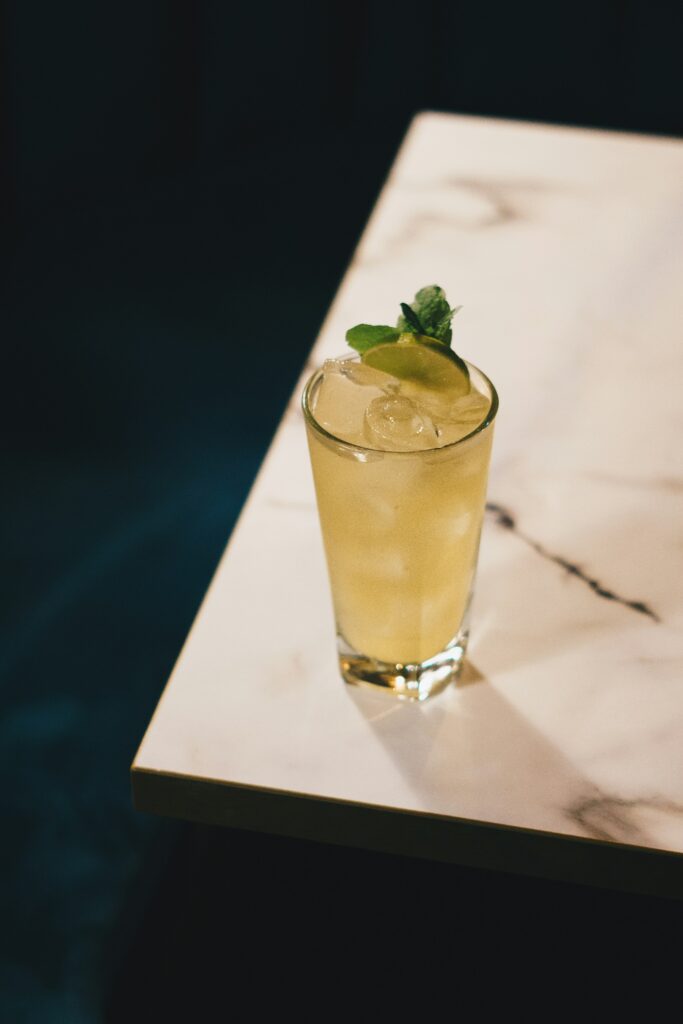
A fan of people, plants, leisurely feasts and a good brew, she runs clinics, workshops, women’s circles and wellbeing retreats alongside developing bespoke lifestyle plans for people with complex allergy needs.
Sophie is a certified and registered multi-disciplinary practitioner specialising in the field of immune health and allergy.
© 2021- A Modern Topic
Come connect, share, and learn gently.
For curious minds and open perspectives.
@amoderntopic
Site credit